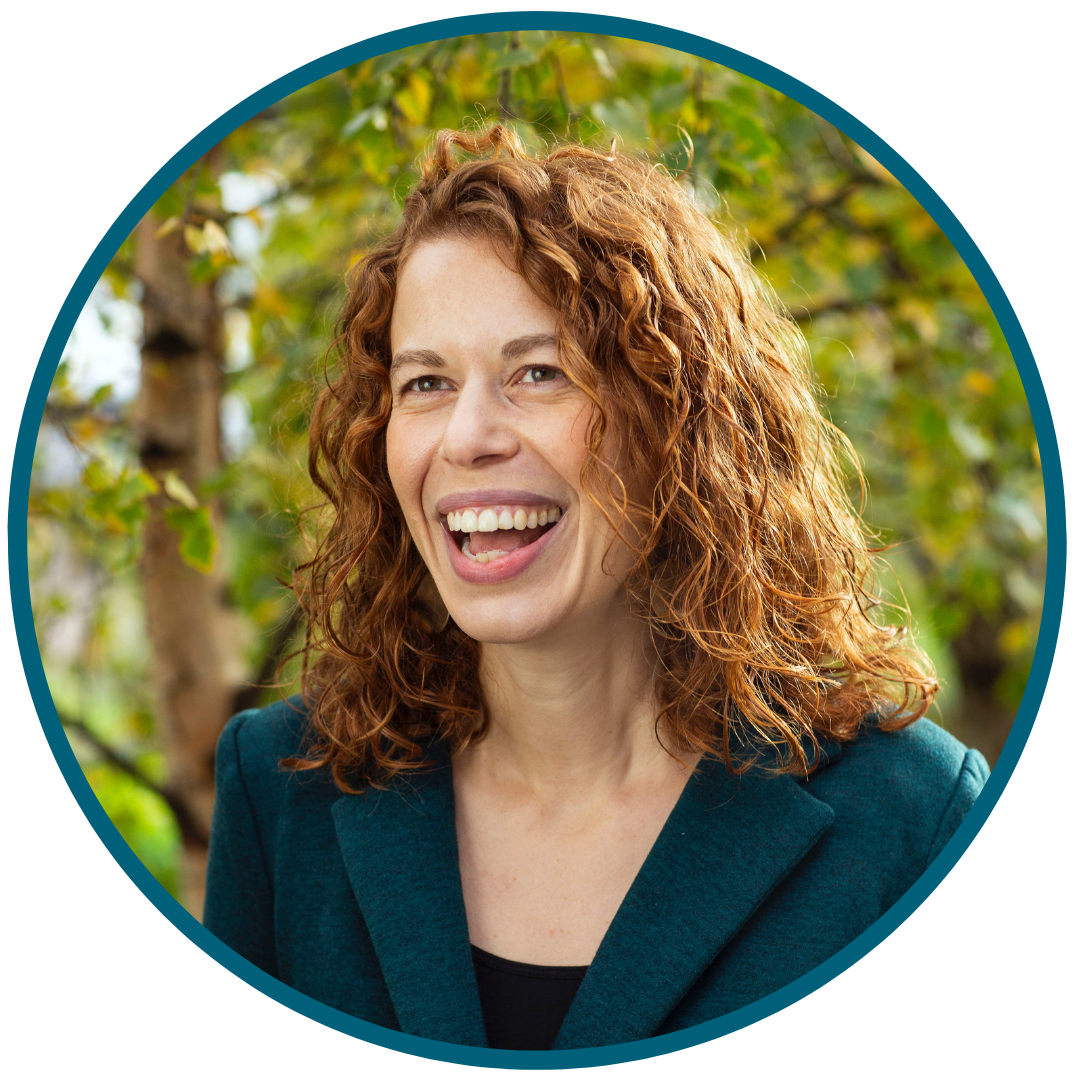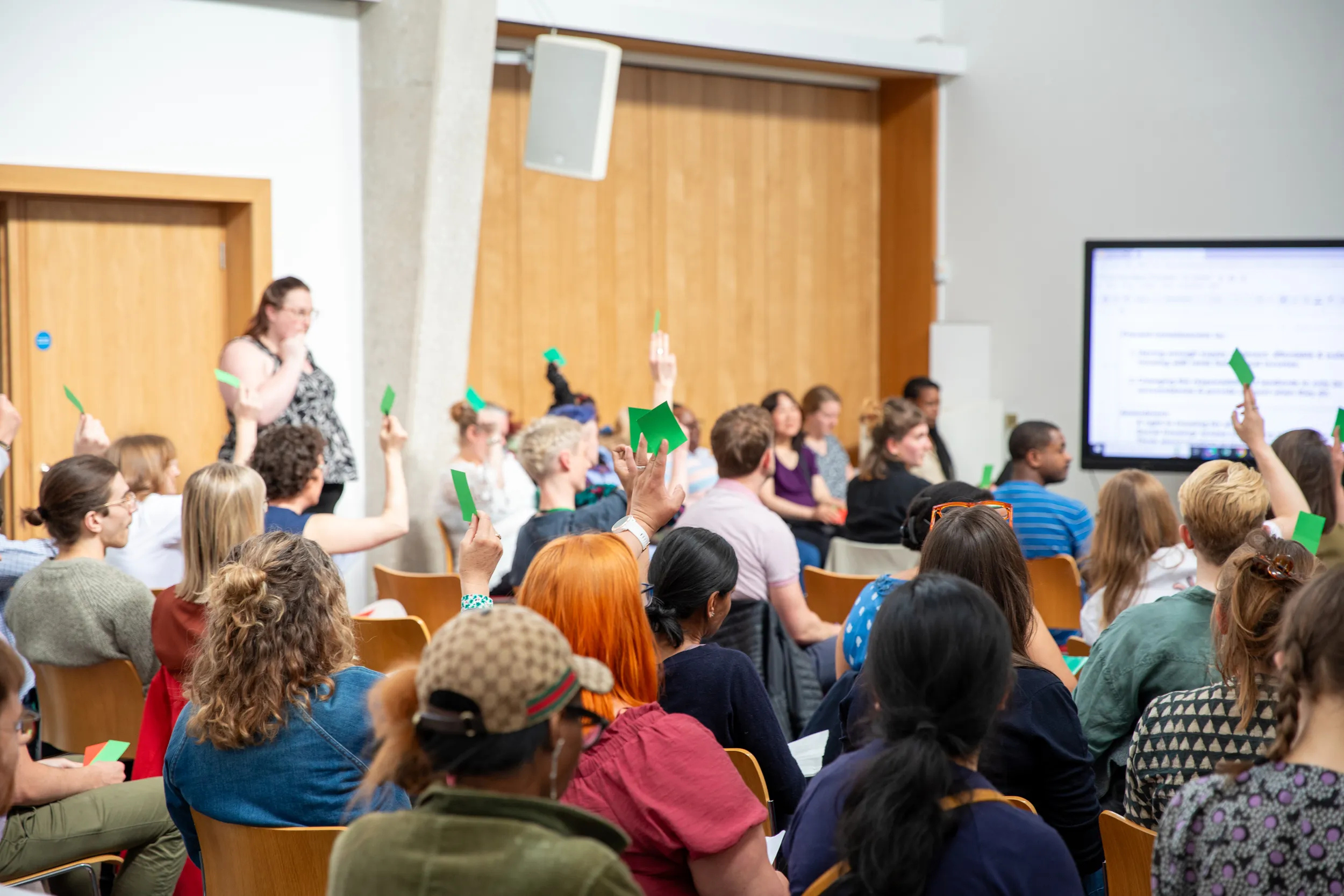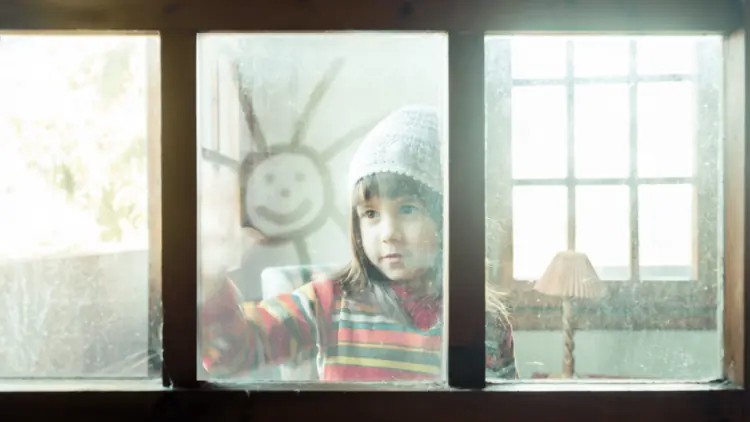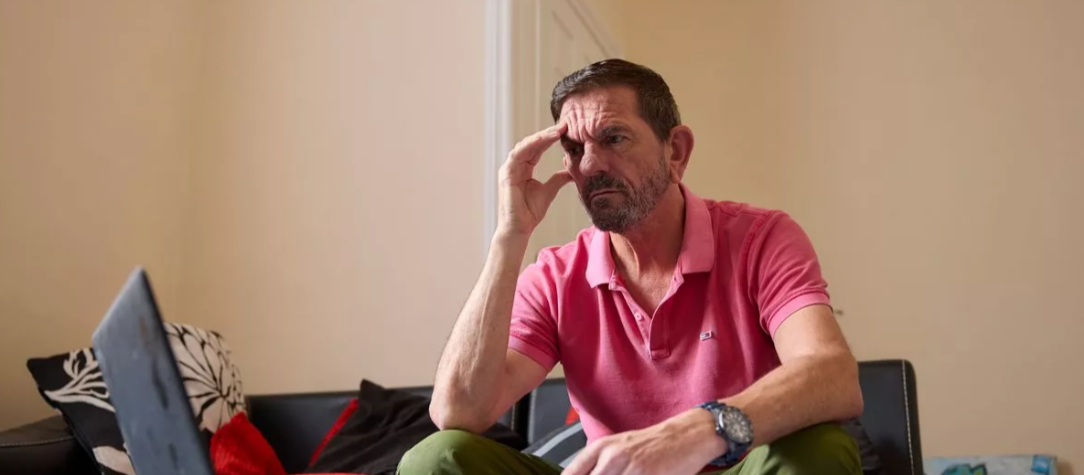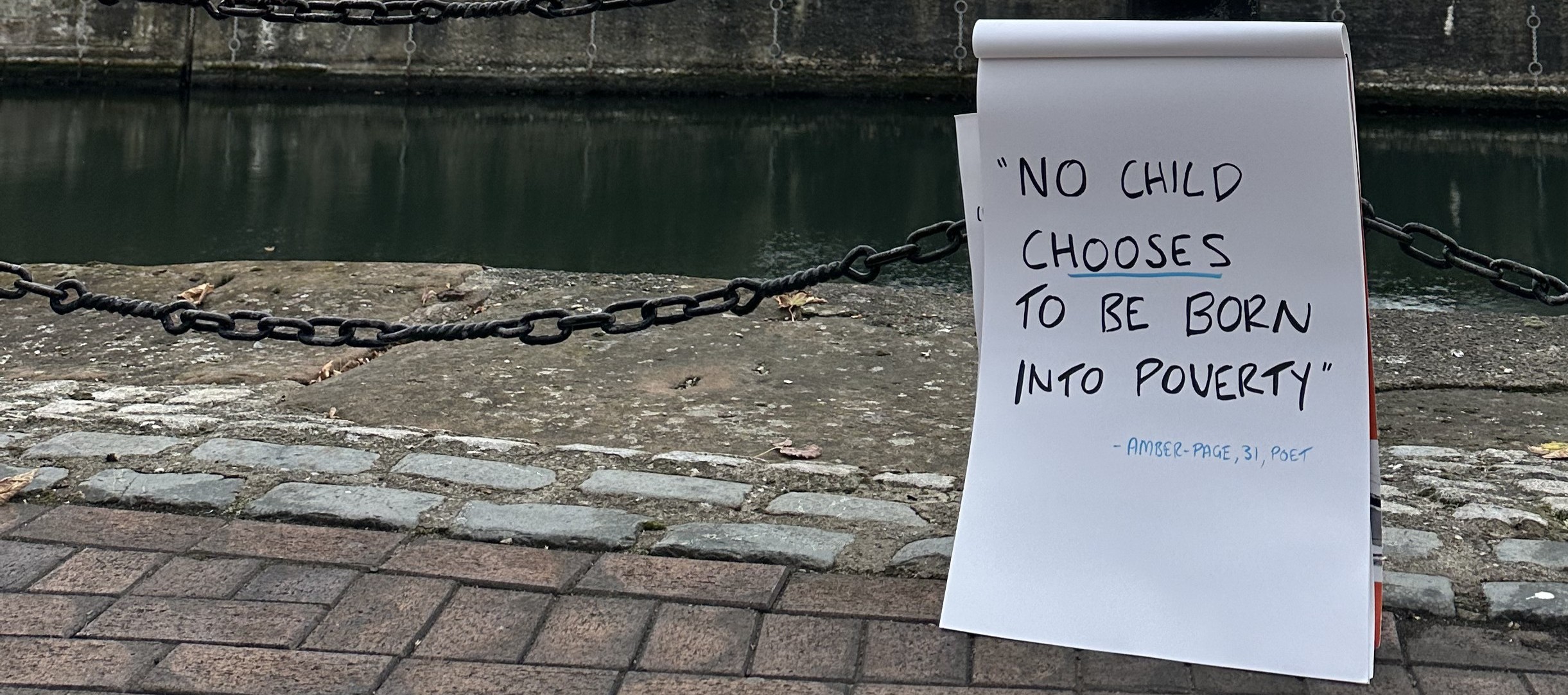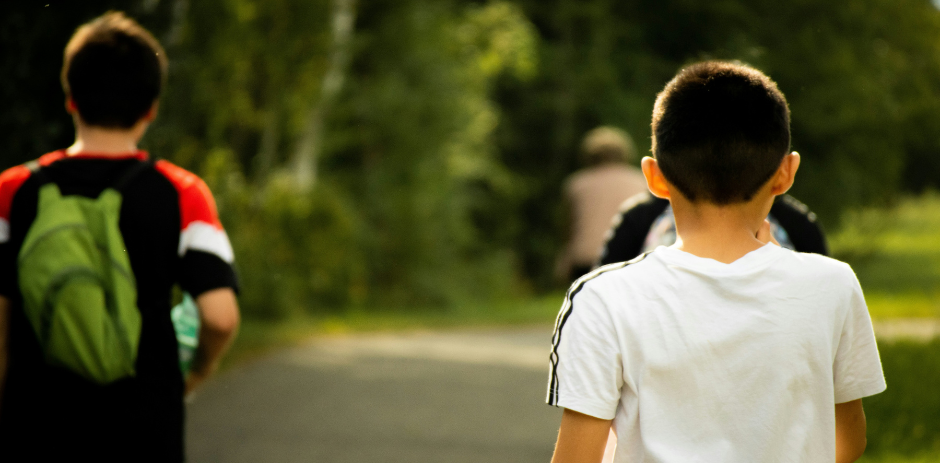By Katy Rubin (Legislative Theatre Practitioner and Creative Civic Strategist, The People Act), Dan Boyden (Arts and Development Practitioner and Theatre Maker), and Trussell Policy and Participation Team
A recent two-year collaboration between Legislative Theatre practitioners and Trussell asked the question: Can creative participatory democracy become embedded within national charities, from lived experience partners to senior leadership, to create a new culture of co-creation at every step of the policy-making process?
The answer is a resounding yes, but only with cross-organisational buy-in, ambitious vision, and a skilled participatory facilitation team. Read on to find out how it happened, what was learnt through this process, and why it could be relevant to other organisations who want to do things differently.
Trussell is an anti-poverty charity and community of food banks, engaging in policy advocacy to ensure that no one in the UK needs a food bank to survive, while providing practical support to people left without enough money to afford the essentials. The organisation has a team dedicated to policy research and influencing across all levels of government, which until recently took a traditional approach, similar to most of the national organisations across the sector – a team of professionals, often university educated, researching and developing positioning and recommendations, and presenting them to government in formal policy-making settings.
Opportunities to bring diverse voices and experiences into this policy work were taken seriously; people with lived experience of hunger and hardship were involved in research as participants, co-producers, and advisers. They were also invited in to share insights and ideas to inform policy solutions and work alongside teams taking recommendations to civil servants and politicians. However, opportunities to work across all stages of policy development and influencing were rare, and the opportunity to take part in an ongoing collaborative process with government policy makers reaching across the UK was even rarer. This practice is common across charities that help shape government policy, and speaks not to a lack of interest but perhaps a lack of capacity, funding, confidence or awareness of processes that reframe this dominant way of working.
Enter Legislative Theatre, a grassroots-led, inclusive, and joyful civic methodology which directly challenges inequalities in institutions, moving us towards a society in which every resident has the agency to creatively shape the rules that impact their lives and communities. How does it work? Katy Rubin, one of the practitioners working on the project, explains:
“Legislative Theatre (LT) brings residents, policymakers and activists together into creative, constructive dialogue, working together to create more equitable and effective policies and laws. We work with community members to create and present plays based on their lived experiences, addressing local or national policy issues and audiences are then invited to improvise alternative responses to systemic problems onstage, and develop these ideas into specific and feasible policy proposals. Following deliberation, debate, and voting, policymakers and advocates carry these proposals forward to their respective offices – using theatre to spark concrete change. It can sound complicated but it isn’t, it’s storytelling and community action; plus there’s often cupcakes at the end of it all.”
The LT torchfire has been lit around the UK. Local councils, national government and community groups – from Glasgow to Birmingham, from Manchester to London, and from Defra to the Home Office – are currently engaging in LT processes on issues including housing and homelessness, food poverty and social welfare, youth mental health, disability rights, the climate crisis, and cultural equity.
How did Trussell take on the Legislative Theatre approach?
In 2022, Trussell’s Policy Research team recognised they could and should go further in bringing lived experience experts into research and policy development. They could see that the process of making sense of research findings and identifying solutions, which often happens behind closed doors, could be strengthened through working alongside people experiencing problems on the ground.
Trussell wanted to shift that culture; so LT practitioners Katy Rubin and Dan Boyden, and Trussell lived experience partner co-facilitators Laura Braddock and John Kempton, were given the time, space and resource to design a four-phase project spanning the breadth of the UK, with each phase aligning directly with Trussell’s goals to create a roadmap to end the need for food banks in the UK:
- An introduction for Trussell staff and local food bank communities to understand more about this way of working through a series of small-scale workshops feeding into the Hunger in the UK research project;
- The delivery of a large-scale legislative theatre event to raise public awareness, bring in other anti-poverty partners, and generate evidence of policy impact;
- A series of in-person facilitation training and coaching across all levels of the organisation, to build capacity while breaking down class and hierarchical divisions;
- Supporting trainees to implement this training through a new series of local co-creation workshops: embedding participatory policy-making at all corners of the organisation and leading to the creation of a UK-wide community of practice.
What did that look like?
From 2022-2024, the team planned and delivered a range of Legislative Theatre activities and directly involved several hundred diverse stakeholders.
Piloting: In 2022/23, we ran a series of participatory workshops in four communities across the UK, aiming to rapidly (within several hours) co-create policy recommendations to address the drivers of hunger, by working together with people who’d previously accessed emergency food. At the conclusion of these workshops, Trussell’s organisational leadership recognised the value of such creative participatory processes, and expressed the desire to scale up the initiative in 2024.
Increasing awareness, building demand and proving impact: In June 2024, during the lead-up to the UK general election, Southwark Foodbank in London created a play for a public-facing Legislative Theatre event. This event aimed to introduce the Legislative Theatre process to a public audience, including partners in the anti-poverty sector, civil servants, and local councils, to learn about the issues from the lived-experience perspective, be part of developing solutions, and make commitments to action. The ‘Policy Team’ from Trussell, Shelter, Joseph Rowntree Foundation, IFAN and Southwark Council worked together with an audience of 60+ to create a slate of three nuanced proposals, all directed at the new government in advance of the July 2024 election.
Capacity-building: Following the public event, we hosted two intensive facilitation trainings – level 1 and level 2 – to upskill Trussell staff, food bank staff, and lived experience partners in the method and facilitation techniques. Importantly, these trainings were offered to a mixed group, marking the first time policy leads, food bank managers, and lived-experience partners had engaged in capacity-building together. Travel, food, and lodging were covered so that participants could attend from across the UK.
Cascading: Finally, the new trainees delivered a series of participatory policy-development workshops with food banks across the UK, with mentorship from lead practitioners. These workshops explored the role of strong local communities in helping to end the need for food banks, and developed policy solutions across different levels of government.
To bring the project to life, Trussell invested major financial and staff resources. The total budget included facilitation, co-facilitation and design fees; lived-experience participant vouchers to recognise time and expertise; venues and food; travel and accommodation; intensive staff time for two full-time Policy Research team members and additional staff time across wider Trussell teams and outreach and engagement across the network of food banks, as well as Trussell’s other anti-poverty partners on the national scale.
What was the reach?
- 29 people trained in Legislative Theatre practice
- 9 facilitators on the project
- 17 partner organisations involved
- 10 food banks involved
- 48 lived experience partners involved
- 50+ policy proposals, grouped into 11 overarching recommendations.
What was radical / truly different about this project?
- Demonstrating a new way to do policy research and development – especially for people who’ve felt turned off, exploited, or otherwise disengaged from research or policy-making in the past. We flipped the traditional model on its head, bringing people together through a creative process to co-create solutions.
- Implementing training and pushing for engagement across the whole organisation – bridging class and experience divides, from the CEO to local community networks. This effort was not isolated within the policy department, nor handed off to the Participation team.
- Framing co-production and creative projects as ongoing, iterative, and embedded across the organisation, as opposed to one-off efforts or tick-box consultations.
- Proving that co-creation can lead to better results and outcomes – through the project, we rapidly developed both hyper-local and national recommendations that were truly relevant to community members’ insights and experiences. This gave Trussell and partners a clearer picture of what’s happening and needed at a community level across the UK, in order to more persuasively influence national policy conversations.
- Prioritising mutual support and celebration – the lead practitioners designed the project to intentionally ‘move out the way’ by the end, through capacity building, co-facilitation, mentorship, a new community of practice, and ensuring organisational representation at key meetings – so that sustainability isn’t an afterthought.
What can other organisations learn from this initiative?
This initiative demonstrates both the value and the feasibility of bringing together a diverse group of people with a broad range of backgrounds and experiences – from a Policy Research team, to on-the-ground food bank staff and volunteers, to lived experience partners – to train and deliver policy co-creation sessions together as equals. Everyone was invited to engage with the project regardless of their role or position in society – from the public events, to the trainings, to the local workshops. The project modelled power-sharing in action, a rarity in both civil society organisations and government agencies. Stakeholders involved agree that national charities have a long way to go towards demonstrating diversity at all levels of work, whether based on ethnicity, disability, and class or economic background. Lived experience partner and project co-facilitator John Kempton said:
“The changing the rules workshops have been amazing, what I have learned has been an eye-opener of the struggles people go through. The skills I learned as a facilitator have helped me grow as a person.”
In addition to being a more ethical and inclusive way to develop policy, the legislative theatre process also proved effective and efficient. We were able to generate, amend, and build consensus around local and national policy ideas in under four hours at the local food bank workshops, working both more quickly and more creatively than traditional policy development processes allow. Local residents and food bank users then felt a sense of ownership regarding the recommendations, and were eager to take part in such workshops more often to shape their local and national spheres. Several policy proposals from the project have led to concrete changes, including new and expanded community outreach programmes from Southwark Council, which were proposed in the Legislative Theatre event in London in June 2024.
Of course, it wasn’t always easy. The project team put in many hours to explain this participatory democracy methodology to various leaders in the organisation, to get buy-in and assuage fears of danger or reputational harm. Trussell had to work closely with food bank managers in order to organise local workshops, and help the food bank community understand the process and aims, and feel truly welcome to attend. Many or even most people were completely unfamiliar with LT before the process, which presented challenges for recruiting both food banks and lived experience participants. Additionally, taking part in training and hosting workshops was a big time commitment for food banks, at a time when they are already so busy responding to record levels of need in their communities. As well as time, there are the cost implications associated with the work, including for facilitation, venue hire, and participant expenses (lived experience partners were always thanked for their time in addition to having any out of pocket expenses covered). Overall, Trussell felt it was more than a worthwhile investment for the richness of the work and results.
What next?
Trussell has now started a Community of Practice made up of the dozens of people who trained up in these creative participatory methods; one upcoming effort includes a new legislative theatre initiative to develop policy recommendations ahead of the 2026 Senedd elections in Wales. Across the organisation, there’s a commitment to embedding creative co-production into policy development, and energy remains high; and project partners involved are eager to see other national charities pick up the gauntlet!
Helen Barnard, Director of Policy, Research and Impact at Trussell, reflected:
“This project has been instrumental in helping us to deliver on our commitment to working alongside people with lived experience of hardship to co-produce policy solutions. We now have a community of people across the UK who are passionate about using creative participatory methods to drive change, and feel equipped to do this.”
——————————————————————-
This article is featured in our 16 July newsletter.
Want to hear about the latest poverty research, stories and events?
Stay on top of what you need to know. Sign up to our newsletter and join our powerful network of 3.9k+ professionals, volunteers and individuals actively engaged in tackling poverty across the UK.

